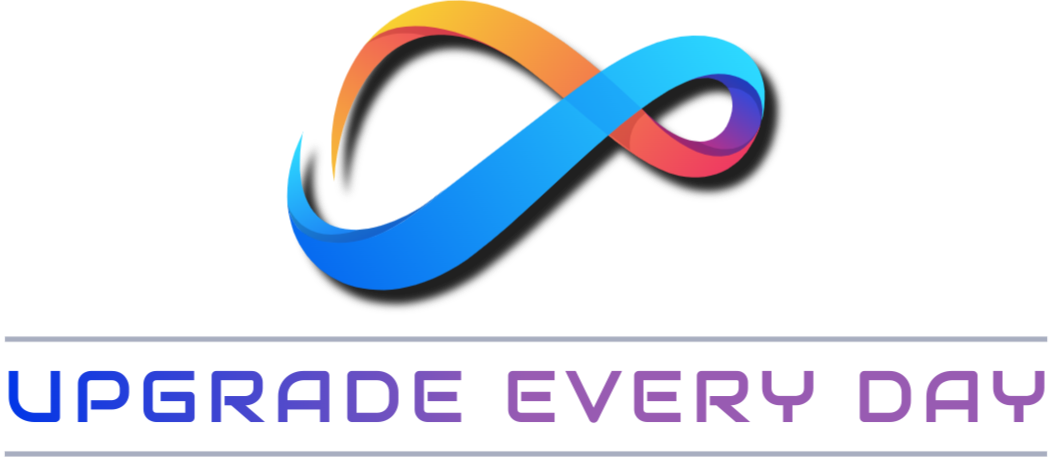Did you know that social media contests can increase brand visibility by up to 34%? Social media contests are key for brands to connect with their audience today.
They help achieve goals like boosting brand awareness and generating leads. To create contests that work, it’s important to understand their value. Also, they should be aligned with your overall marketing aims.
With thorough social media contest planning, businesses can launch contests that really make an impact.
Key Takeaways
- Social media contests can increase brand visibility by up to 34%.
- Aligning social media campaigns with overall marketing goals creates a cohesive brand message.
- Setting clear and measurable goals using the SMART framework is essential for success.
- Identifying the target audience helps tailor the campaign effectively.
- Developing a comprehensive campaign plan, including a timeline and budget, is crucial.
Importance of Alignment with Overall Marketing Goals
Social media is key in today’s marketing plans. It’s vital these campaigns echo the broader goals of the business. This unity boosts impact and aids in reaching goals smoothly.
When paired with other marketing activities, social media use is smarter. Through combined efforts like contests, businesses can focus better. This reduces wasted efforts and helps in spending wisely.
Such alignment also makes meeting goals simpler. It lets firms track their success easily. Businesses can then make choices that push them towards their aims.
A consistent brand story comes from aligned social media efforts. Campaigns that mirror the brand’s values strengthen its identity. Trust grows, making the brand well-known and loved by its audience.
Social media efforts must blend into the wider marketing strategy. They should boost other actions and aim for common goals. Using social media wisely, firms can design a strong and unified marketing strategy.
“Aligning social media campaigns with the overall marketing goals ensures effective resource utilisation, goal achievement, and a consistent brand narrative.”
– Paul Nightingale, Marketing Expert
Social Media Campaigns that Align with Marketing Goals
Targeted social media campaigns bring better investment returns. They boost brand presence, generate leads, and enhance engagement. Here are examples of such effective campaigns:
- Campaign 1: Digital Branding Contest
- Campaign 2: Social Media Influencer Partnerships
- Campaign 3: User-Generated Content Campaigns
This aims to make the brand known and unique online. By hosting creative contests, brands inspire their followers to create content mirroring brand values. Managing these contests well ties them into the bigger marketing picture.
Teaming up with influencers who share the brand’s audience and values extends its reach. Influencers showcase the brand, enhancing social media campaigns and overall marketing goals.
Inviting users to share their brand stories builds a community and loyalty. These campaigns, promoting user content, match marketing goals by lifting brand visibility and engagement.
Aligning social media with marketing objectives taps into digital marketing’s full potential. It crafts a powerful, cohesive brand message for the audience.
Goal Setting and Target Audience Identification
When launching a social media contest, it’s key to have clear, measurable goals. Setting specific aims with the SMART framework guides us to success. This way, our goals are Specific, Measurable, Achievable, Relevant, and Time-bound.
It’s also vital to know who we’re targeting. Making audience personas lets us see who will join our contest. This information helps pick the right social media platforms and understand how our audience engages.
Understanding the SMART Framework for Goal Setting
The SMART framework helps in setting effective goals for social media contests. Here’s what each part means:
- Specific: Define your campaign goal clearly. You might aim to boost brand awareness, drive traffic, or gather leads.
- Measurable: Choose metrics to gauge goal success. This can be entry counts, social media interaction, or conversion rates.
- Achievable: Your goals should be realistic, fitting your resources and time. Stretch goals are good, but they must be reachable.
- Relevant: Your goals should match your overall brand and marketing aims. Your contest should help achieve broader business objectives.
- Time-bound: Set a deadline for your goals. This keeps you motivated and aids in planning and allocating resources.
Using the SMART framework lays a strong base for contest planning. It ensures our goals are precise and reachable, preparing us for success.
Identifying Target Audience and Platform Preferences
Knowing our audience is crucial for a tailored contest. Audience personas give us insight into their age, interests, and habits. This shapes our campaign to engage them better.
Understanding which social media channels our audience prefers boosts our contest’s success. We should focus on platforms where they’re most active. For instance, if they prefer Instagram over Facebook, we’ll use Instagram more.
Knowing our audience’s likes and habits helps us craft appealing content. By aligning our campaign with their interests, we’re likelier to catch their attention and increase participation.

Armed with knowledge of the SMART framework and our audience, we’re set to plan our social media contest. By setting targeted goals and adapting to our audience’s preferences, we’re more likely to succeed.
| Benefits of Goal Setting and Target Audience Identification | Reasons to Use the SMART Framework |
|---|---|
|
|
Campaign Planning and Strategy Development
Making a detailed campaign plan is vital for any social media contest to succeed. It acts as a roadmap, guiding your activities to reach the goals you aim for. Planning and developing strategies involve several important steps:
1. Define the timeline:
Clear deadlines for each campaign phase keep you organised. First, outline key moments like the contest’s start, deadlines for entries, and announcing winners. Allocate enough time for creating content, setting up the platform, and promoting. This ensures everything runs smoothly and engagement is high.
2. Determine the budget:
Setting a budget is key for planning resources and managing the campaign well. Think about the costs for prizes, making content, and promotion. Check if you have enough funds or need more. Remember to account for both direct and indirect expenses to know the total cost.
3. Assign responsibilities:
Defining everybody’s role in your team is crucial. This ensures all know their tasks and can work effectively. Assign people to handle content, platform management, promotion, and analytics. By doing this, tasks won’t overlap, work flows better, and the team works well together.
4. Craft a compelling campaign message:
Your message needs to speak to your audience and show why joining your contest is good. Create a message that is interesting, convincing, and matches your brand. Use words that touch your audience’s feelings, making them more likely to engage and share.
5. Select suitable social media platforms:
Not every social media platform will suit your campaign. Understand where your audience spends time to choose the right platforms. Look at factors like how users engage, content types, and ads to decide. Picking the right platforms boosts your campaign’s reach and interaction.
6. Determine content posting frequency and timing:
Posting consistently is essential for a social media campaign. Decide how often you’ll share content to keep your audience engaged. Also, think about when to post for the best visibility. By studying when your audience is online, you can find the best times to post.
7. Identify relevant hashtags and keywords:
Use hashtags and keywords to make your campaign easier to find. Look for popular hashtags and keywords related to your contest or field. This makes your campaign more visible to the right people, boosts engagement, and grows your reach. Tracking hashtag performance helps you adjust your strategy if needed.
By following these steps and creating a solid campaign plan, you’re setting yourself up for a successful social media contest. Remember, being flexible and ready to adapt is also important. You might need to tweak your plan based on new information and feedback. With good planning, strategic action, and ongoing tracking, your campaign is more likely to reach its goals.
Key Elements of a Comprehensive Campaign Plan
| Element | Description |
|---|---|
| Timeline | Define clear deadlines for each phase of the campaign, including the contest launch, submission deadlines, and winner announcements. |
| Budget | Determine the resources required for the campaign, including prize procurement, content creation, and promotion. |
| Responsibilities | Assign roles and responsibilities within your team to ensure efficient workflow and collaboration. |
| Campaign Message | Create a compelling message that resonates with your target audience and communicates the value of participation. |
| Social Media Platforms | Select the most suitable platforms based on your target audience’s preferences and behaviours. |
| Content Posting | Determine the frequency and timing of your content posts to maintain engagement and visibility. |
| Hashtags and Keywords | Identify relevant hashtags and keywords to increase discoverability and engagement. |
Content Creation and Curation
In social media contests, making engaging content is essential. It’s crucial to have content that fits your campaign and grabs attention. This drives participation from your audience.
Vary your campaign with different types of content like images, videos, and interactive bits. This suits various tastes and makes the experience more engaging and fun.
Also, sharing good content from others can boost your campaign. It shows your brand as a leader in your field. Sharing stuff from trusted sources adds value for your audience.
“Content creation is crucial in social media contests. It’s important to make engaging content that fits the campaign message and grabs attention.”
Think about what your audience likes when creating and curating content. Research their interests to make content they will love. This helps your social media contest become more exciting.
The secret to great content is offering value. Aim to educate, entertain, or inspire. Your content should also match your campaign goals and brand identity.
Example Social Media Contest Content Formats:
- Eye-catching images featuring prizes or contest details
- Engaging videos showcasing the benefits of participating
- Interactive quizzes or polls to encourage audience interaction
- Compelling blog posts or articles related to the contest theme
- Influencer collaborations to leverage their following and credibility
Using various content types helps grab your audience’s attention. It boosts engagement in your contest.
Benefits of Curating Third-Party Content
| Benefits | Description |
|---|---|
| Establishes Credibility | Sharing content from reputable sources positions your brand as a trusted authority. |
| Allows Expert Insights | Curating content from industry experts provides valuable insights to your audience. |
| Enhances Engagement | Third-party content sparks conversation and encourages audience interaction. |
| Showcases Industry Awareness | Sharing relevant content demonstrates your brand’s knowledge of the industry landscape. |
For good third-party content, stay updated on industry news. Follow leaders and reputable sources. Sharing content that matches your brand’s values builds trust and loyalty.

Campaign Execution and Monitoring
After launching your social media contest, there’s more work to do. To get the best results, you must manage and watch over the campaign closely. Here are the key things to focus on:
Scheduling and Publishing Consistent Content
Keeping your audience engaged is crucial. So, regularly schedule and share content related to your contest. This might include winner announcements, stories from participants, or previews of what’s coming.
Active Participant Engagement
Interaction is important for a successful contest. Make sure you respond to comments and messages, and recognise participant contributions. This builds a stronger connection with your audience and keeps them involved.
Addressing Negative Feedback
Even great campaigns can face criticism. Don’t ignore negative feedback. Instead, respond professionally and try to fix any problems. This approach shows you’re committed to a positive experience for everyone involved.
Analysing Performance with Social Media Analytics Tools
It’s important to know how your contest is doing. Use social media analytics tools to keep track of engagement, reach, and other key metrics. Insights from these tools help you understand what works, guiding your future efforts.

“Successful social media contests need careful management and monitoring. Key to success include staying consistent, interacting with your audience, tackling feedback positively, and using data to improve future campaigns.”
Best Practices for Running a Facebook Competition
Facebook competitions are great for improving brand awareness and engagement. To make your competition work well, there are key steps to follow:
- Clearly Define Goals: Before you start your Facebook competition, know what you want to achieve. Do you want more people to know about your brand, engage more, or get leads? When you know your goals, you can shape your competition to meet them.
- Choose the Right Competition Type: There are many types of competitions on Facebook, like sweepstakes, photo contests, or caption contests. Pick one that matches your goals and interests your audience.
- Adhere to Facebook’s Rules: Knowing and following Facebook’s competition rules is a must. This ensures you don’t face any penalties or restrictions.
- Create Compelling Visuals and Copy: Eye-catching visuals help grab attention on Facebook. Use striking images and videos that highlight your competition. Also, write clear and persuasive texts that showcase the benefits of joining.
- Set a Realistic Timeline: Plan a timeline for your competition that allows buzz to build but also gives people enough time to enter. Think about how complicated the entry process is and what prize you’re offering.
- Promote Across Multiple Channels: Don’t just rely on Facebook to get the word out. Use emails, blogs, and social media ads to attract more participants.
- Incorporate User-Generated Content: Get participants to create and share their own content for your competition. This boosts engagement and promotes your brand for free.
- Engage with Participants: Make sure to connect with participants by answering their comments and questions. This shows you value them and enhances your brand’s image.
- Offer Prizes with Universal Appeal: Choose prizes that appeal to a wide audience and match their interests. This helps draw in more participants.

By sticking to these best practices, businesses can boost the success of their Facebook competitions. This helps meet their goals for social media contest planning more effectively.
Let's Summarise...
Social media contest planning is key in digital marketing. It helps businesses reach their marketing goals. Proper planning and alignment with these goals are crucial. Running Facebook competitions or other contests can boost brand engagement.
To plan a contest, you must set clear goals. Know your audience and craft a detailed strategy. Creating engaging content is essential. Once your contest starts, keep it running smoothly. Always check how it’s doing to keep your audience involved.
Using these strategies can make social media contests powerful. They increase brand awareness and customer interaction. With good planning and careful execution, your contest can help you connect with your audience. It lifts your digital branding efforts to new heights.
FAQ
What is the importance of social media contest planning?
Planning social media contests is key in today’s world for brands. It boosts their visibility and engages people who might buy their products. Having a clear plan helps in reaching goals like increasing brand awareness.
How should social media campaigns align with overall marketing goals?
Social media campaigns need to match the bigger marketing goals of a brand. This creates a uniform brand message across all platforms. It makes using resources more efficient and helps in achieving set goals.
Why is goal setting and target audience identification important in social media contest planning?
Setting precise goals is crucial for any social media contest. Using the SMART framework gives a clear path to success. Knowing your audience and where they hang out online is also vital for tailoring your campaign just right.
What are key aspects of campaign planning and strategy development in social media contests?
A detailed campaign plan is a must for a successful social media contest. This includes scheduling, budget planning, and deciding who does what. It’s also important to craft messages that speak to your audience and choosing the right platforms.
Knowing when to post content and using the right hashtags makes your campaign more effective.
How does content creation and curation impact social media contests?
Creating engaging content is crucial for social media contests. The goal is to align content with your campaign’s message while catching the audience’s eye. Mixing up your content types and sharing useful third-party content can make your campaign stand out.
What is the significance of campaign execution and monitoring in social media contests?
Keeping your audience engaged requires regular content posting once your campaign starts. Reacting to participants and tracking performance with analytics tools are vital for making your contest better.
What are the best practices for running a successful Facebook competition?
To win with Facebook competitions, start with clear goals and understand Facebook’s rules. Use eye-catching visuals and clear messages, and don’t forget to promote across various channels. Engaging with your audience and offering attractive prizes can also boost success.
How can businesses ensure successful social media contest planning?
Successful social media contests come from understanding your goals and aligning them with your overall marketing strategy. It’s all about planning well, executing effectively, and keeping an eye on how things go. Whether it’s a Facebook contest or another type, best practices and performance analysis are key to engaging your audience.





